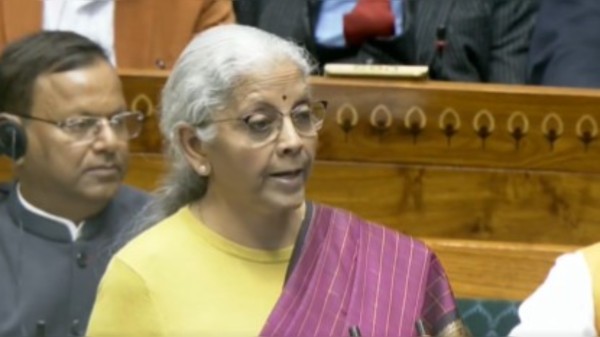

By signing in or creating an account, you agree with Associated Broadcasting Company's Terms & Conditions and Privacy Policy.


By signing in or creating an account, you agree with Associated Broadcasting Company's Terms & Conditions and Privacy Policy.

Kolkata: An education loan is a loan offered by banks or financial institutions to students to enable them to pursue higher education. One can apply for education loans to study both in Indian educational institutions and foreign. Since these loans are basically designed so that the student repays after he/she starts earning, flexible repayment periods are possible in education loans. Therefore, these can become financial lifelines for students.
Education loans are available to study undergraduate courses (after leaving school), or pursue post-grad education (after completing undergraduate courses) or professional studies such as medicine, engineering, law etc. One can also apply for education loans to pursue courses that impart courses for career growths and skill upgradation. Almost all banks offer education loans. Like other loans such as home loans, vehicle loan or personal loan, the interest rate on an education loan too depends on the prevailing key policy rates in the country. Since India is just entering a declining rate cycle, it could be expected that the interest rate on education loans could go down over the next few years.
It is important to know what the expenditures of a student are covered by education loans. These are typically tuition fees; hostel fees; passage money (if the student studies abroad); cost of books, equipment etc; laboratory fee; examination charges; other expenses like computer cost required for course work, caution money etc. Please note that day to day travel expenses and food, shopping expenses are not borne by education loans.
Lending institutions offer education loans so that one can pursue higher educating at the end of which one will get a job, start earning and pay off the loan. proceeding from this logic, it is easy to see that any bank will be more eager to lend for course which makes a candidate get a high-paying job quickly. Therefore, students who can get admissions in courses that offer bright job placements and prospects will get education loans relatively easily. So the course for which a loan is sought is extremely crucial. Other factors are the amount of loan one is applying for and the repayment capacity of the applicant family. In fact, the lending institution can ask the applicant for a profile of the family assets which will given them an idea -- and therefore, a level of comfort -- that their loan would eb repaid even if the applicant finds it difficult to get a job at the end of the course. For the same reason, the monthly household income will serve as a significant factor.
Some banks offer concessional rates of interest on education loans for girl students. Also for the first year after completing the course, one does not have to start paying EMIs. The process of repayment of the loan begins after the 1-year period.
The following documents are usually asked for by a bank or any other institution offering education loan:
Letter offering admission from the relevant educational institution
Marksheets of earlier education from school and college
Proofs of age, address, identity, signature
Visa (if the course is at a foreign institute)
Salary slip of guardian(s), bank account statements, income tax returns
Audited balance sheet and P&L accounts (if the guardian has a business)
Section 80E of the Income Tax Act 1961 allows tax deduction on education loans. However, one has to remember that tax incentives are not available on the principal component but it is given only on the interest component of the loan. Also, it is important to note that tax deduction on education loan is available for a maximum period of eight years. It will be counted from the year in which interest repayment begins. However, if the loan is extinguished before eight years, tax benefits will be available till the loan is paid off fully. If you take an education loan, you have to ask your bank to furnish you a certificate from the lending institution that will separately mention the interest component.












